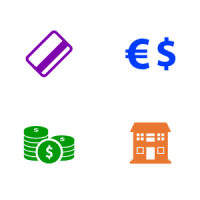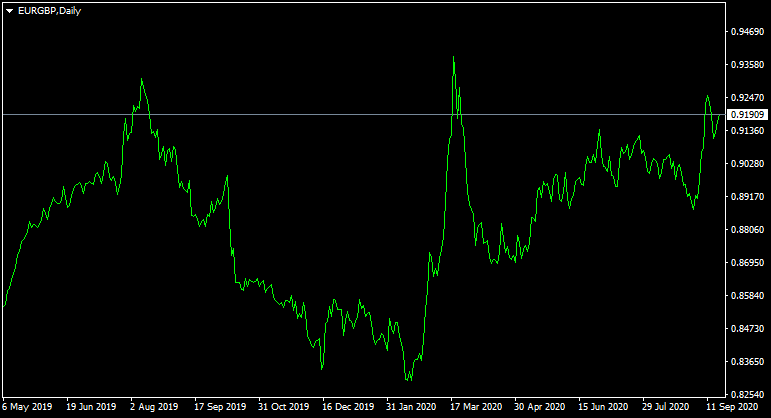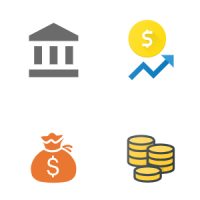Table of content
There are many trading guides which talk about the important aspects of risk management, strategies, and indicators. However, one question which is often overlooked is choosing the right Forex broker. Yet, the quality of service of the brokerage company as well as its commission structure can have a major impact on the overall trading performance of market participants.
The first essential component of choosing a Forex broker is to find a company which is reliable and has a good reputation. This can be achieved in two ways. Firstly, the market participants can go through the list of broker’s regulations and certifications. After all, if the firm is not regulated by any respectable institution, this can be a major sign that there might be something wrong with the company.
In addition to that, it can be very helpful to read the customer reviews for that particular broker. By doing so, the trader can get some idea about the customer satisfaction with the given brokerage company.
The next important stepping stone for picking a Forex broker is to go through its commission structure. It is important to check whether the brokerage company charges a commission per trade, as well as taking into account the size of the spreads. This might seem insignificant for some market participants, but it is worth keeping in mind that those types of expenses can certainly add up to a considerable amount in the long term. Consequently, finding a broker with low commissions can have a very positive impact on the earnings of traders.
When discussing the commission structure of the brokerage company, it is helpful to also take a look at the swap rates of the broker. This is especially important for long term traders, as well as for those who are using carry trading strategies.
Another major factor with choosing a Forex broker is speed and quality executing trades. For example, if the brokerage company has a dealing desk, which approves all the trades, it can be problematic in times of high volatility. In addition to that, the market prices with some brokers are not updated on time and lag behind some number of seconds, compared to some other brokerage companies. Therefore, this might be something to avoid.
Finally, it might be worthwhile to open a demo account with the brokerage company, before starting to trade with real money. This allows the market participants to test trading on the platform, as well as getting some idea about the quality of service with the brokerage firm, without taking any financial risk. Now, let us go through each of those factors in more detail.
License and Customer Reviews
When a trader decides on which Forex broker to trade with, one important thing to consider here is the company regulators, as well as the reputation of the brokerage firm itself. Obviously, brokers can promise a lot of things, bonuses, low commission rates, a wide selection of instruments to trade, negative balance protection, and many other things. However, if the company is not properly regulated, then it is very difficult for the trader to determine whether the firm will actually fulfill those promises.
The fact of the matter is that when the brokerage company is regulated by a highly authoritative regulatory body, then it can be beneficial for traders in several ways. Firstly, it is worth mentioning that those traders who feel that they have been treated unfairly by the brokerage company, always have an option to appeal their case to the regulator. If the regulator determines that the client was indeed treated unfairly, then the trader will get a refund from the broker.

In addition to that those top tier regulators also require from the brokerage companies to have the negative balance protection for traders. This is very important because traders always want to make sure that they will not lose more money than they have originally invested in their trading accounts.
The list of some of the top tier regulators includes: the Financial Conduct Authority (FCA) in the United Kingdom, the Cyprus Securities and Exchange Commission (CySEC) in Cyprus, the Australian Securities and Investments Commission (ASIC) in Australia, and the Federal Financial Supervisory Authority (BaFin) in Germany.
Here it is also worth mentioning that in addition to going through the broker’s regulators, it is also helpful to take a look at the broker reviews. In fact, there are hundreds of websites, specifically designed for this purpose. By reading those reviews, the market participants can get some idea about the advantages and disadvantages of trading with that brokerage company.
It goes without saying that, if the firm has a lot of negative reviews, it can be a sign that this firm might not be the best choice for the market participants. On the other hand, if the broker has a lot of positive reviews, it suggests that the majority of company clients are happy with the brokerage firm.
Commission Structure of Brokerage Company
Finding a Forex broker with low commissions to trade is one of the most important things many traders look for. The fact of the matter is that there are some brokerage firms which charge a flat rate of commission per trade. It goes without saying that this can be problematic for some traders. This is especially true for scalpers and day traders.
In fact, those market participants who are using scalping strategies might execute around 50 traders per day. So if the flat rate of commission per trade is $10, which is very common, then the market participant has to spend up to $500 per day. Obviously, over time those fees can add up to a significant amount and can have a notable negative impact on the trading performance of the individual traders.
Fortunately, there are many brokerage companies that offer trading accounts with no fixed commissions per trade. Instead, they make money solely on spreads. Therefore, everything else being equal, it might be preferable to choose this type of broker.
Now, one thing to note here is that there are no standardized spread sizes when it comes to Forex trading. The fact of the matter is that some brokerage companies might offer more competitive tighter spreads than some other brokers. It is true that for long term traders a 1 or 2 pip difference in spreads might have very little effect for their earnings. However, for scalpers and day traders who are executing dozens of traders per day, it can make a significant difference for their trading accounts.
In addition to that when it comes to commissions, finding a good Forex broker requires identifying the company which pays decent rates on swaps. When there is an interest rate differential between two currencies and the trader keeps the position open overnight, the broker either charges or pays the daily interest to the client. In order to illustrate one example of such a scenario, let us take a look at this daily EUR/GBP chart:

As we can see from the above diagram, the Euro has made some notable gains during Spring and Summer, rising from 0.85 to 0.92 level. This was followed by a sharp correction, as a result of which the single currency has dropped all the way down to 0.83 level by January 2020. Those losses, however, turned out to be temporary. From February 2020, the Euro has made steady gains and by September 2020, has returned back to 0.92 level.
Here it is worth noting that during Spring 2019, the key interest rate of the European Central Bank stood at 0%, while the Bank of England kept rates at 0.75%. This means that the interest rate differential between those two currencies was 0.75%. Consequently, those traders who opened and held the short EUR/GBP position received a daily income from brokers.
Now, one thing to keep in mind here is that the brokerage companies do retain some percentage of interest rate differential as a commission. In the case of a 0.75% differential with EUR/GBP pair, the brokerage company might pay its client 0.65% annual interest rate, while keeping 0.1% as a commission.
On the other hand, those traders who have opened a long EUR/GBP position had to pay the daily interest to the broker. So in the case of the broker which has 0.1% commission on swaps, the market participants have to pay the 0.85% annual interest to the brokerage company.
Just like with other types of commissions the swap rates might vary from broker to broker. Consequently, some of them might charge just 0.1%, while others 0.5%. Therefore, it is especially important for the long term and carry traders to choose the brokerage firm, which offers some of the most competitive rates on swaps.
Speed and Quality of Trade Execution
When discussing how to choose a Forex broker it is important to mention that one of the most important factors here is the speed and quality of trade execution. One of the most important things to keep in mind here is to avoid brokerage firms with dealing desks.
One thing to keep in mind when selecting a Forex broker is that with some brokerage firms all trades go through and be approved by the dealing desks. This means that under highly volatile circumstances, it is possible for trades to be rejected by the brokerage firm.

This can certainly lead to some problems and unnecessary losses. Firstly, traders can lose some valuable opportunities. If the current market price of the given currency pair is very lucrative, but the dealing desk, for whatever reason rejects the transaction, it can be quite damaging to the trader’s trading performance.
At the same time, it is also possible for the trader to attempt to close the trade at profitable levels, but being unable to do so, because of the dealing desk. As a result, the trader might miss an opportunity to make any gains with this position and be forced to close the trade at a loss. Consequently, it is very important for the market participants to protect themselves from those types of nasty surprises, by choosing those brokers which have no dealing desk.
In addition to that, it is worth mentioning that, some brokerage companies do not update the bid and ask prices of currency pairs on time. In some cases, they might be lagging behind the real market rates by a number of seconds. This can be problematic for some traders, who want to have the latest updated prices at all times. However, here it is also worth noting that some market participants do try to take advantage of those imperfections in order to make some quick risk-free payouts.
Testing Demo Accounts
When deciding on which Forex brokers to choose it might be a good idea to open a demo account, before start trading with real money. This is because it allows traders to experience the trading platform with all of its advantages and drawbacks without taking any sort of financial risk.
On demo accounts, the brokerage firm gives a trader virtual money for trading. This has several advantages. Firstly, with demo accounts, traders can check the size of the spreads and swaps and test them under real market conditions. This can help the market participants to determine whether the brokerage company offers its clients competitive spreads. In addition to that, traders can also test the quality of trade execution.
Finally, it is also worth noting that the demo accounts help the market participants to determine whether or not they are ready to move on to real trading accounts without taking any financial risk. For example, if an individual consistently ends up with losses on a demo account, then it might be too early for him or her to start trading with real money. On the other hand, those traders who constantly make gains on demo accounts might be well-positioned to move on to real trading accounts.
Tips on Picking a Forex Broker – Key Takeaways
- One of the most important factors when choosing a Forex broker is the list of regulatory bodies, which regulate its activities. The fact of the matter is that if the firm is not regulated, then all of the broker’s promises and conditions might be false. On the other hand, if the company is regulated then the clients can always appeal their case to the regulatory authorities if they think that they have been treated unfairly. As a result, they might even get a refund as a part of the settlement.
- The commission structure of the broker is yet another important factor when choosing the brokerage company to trade with. The reality of the matter is that some brokerage firms charge a flat fee for executing every single trade. However, some firms only make money on spreads, letting the individuals to trade without paying any fixed commissions. The actual size of the spreads also varies, depending on the broker, with some brokerage firms offering more competitive terms than others.
- Before one starts with trading on real accounts, it might be a good idea to test the broker and the trading platform by opening a demo account. This allows the market participants to get some idea about the size of the spreads of the brokerage firm, as well as the quality of trade execution. In addition to that, a demo account can help traders to determine whether or not they are ready to move on to real trading accounts.



